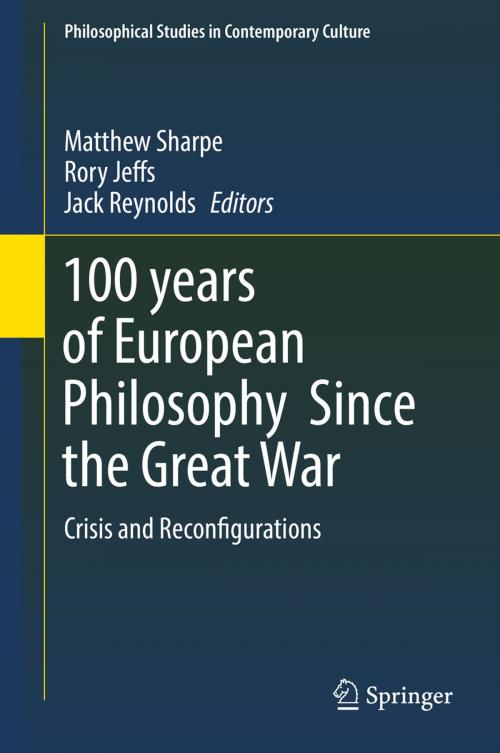100 years of European Philosophy Since the Great War
Crisis and Reconfigurations
Nonfiction, Religion & Spirituality, Philosophy, History, Criticism, & Surveys| Author: | ISBN: | 9783319503615 | |
| Publisher: | Springer International Publishing | Publication: | February 14, 2017 |
| Imprint: | Springer | Language: | English |
| Author: | |
| ISBN: | 9783319503615 |
| Publisher: | Springer International Publishing |
| Publication: | February 14, 2017 |
| Imprint: | Springer |
| Language: | English |
This book is a collection of specifically commissioned articles on the key continental European philosophical movements since 1914. It shows how each of these bodies of thought has been shaped by their responses to the horrors set in train by World War I, and considers whether we are yet ‘post-post-war’. The outbreak of World War I in August 1914,set in chain a series of crises and re-configurations, which have continued to shape the world for a century: industrialized slaughter, the end of colonialism and European empires, the rise of the USA, economic crises, fascism, Soviet Marxism, the gulags and the Shoah. Nearly all of the major movements in European thinking (phenomenology, psychoanalysis, Hegelianism, Marxism, political theology, critical theory and neoliberalism) were forged in, or shaped by, attempts to come to terms with the global trauma of the World Wars. This is the first book to describe the development of these movements after World War I, and as such promises to be of interest to philosophers and historians of philosophy around the world.
This book is a collection of specifically commissioned articles on the key continental European philosophical movements since 1914. It shows how each of these bodies of thought has been shaped by their responses to the horrors set in train by World War I, and considers whether we are yet ‘post-post-war’. The outbreak of World War I in August 1914,set in chain a series of crises and re-configurations, which have continued to shape the world for a century: industrialized slaughter, the end of colonialism and European empires, the rise of the USA, economic crises, fascism, Soviet Marxism, the gulags and the Shoah. Nearly all of the major movements in European thinking (phenomenology, psychoanalysis, Hegelianism, Marxism, political theology, critical theory and neoliberalism) were forged in, or shaped by, attempts to come to terms with the global trauma of the World Wars. This is the first book to describe the development of these movements after World War I, and as such promises to be of interest to philosophers and historians of philosophy around the world.















